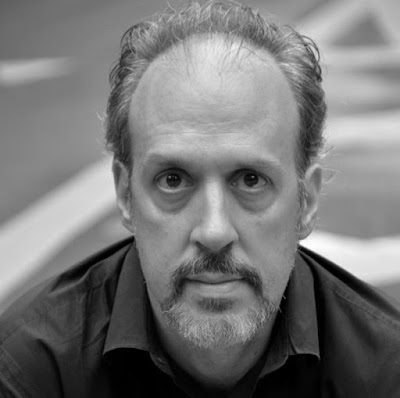Kent Jones, film
critic, director of the New York Festival and collaborator with Martin
Scorsese, has recently directed and co-written a revisiting, on film, of the
famous 1962 interview with Alfred Hitchcock conducted by Francois Truffaut over
the course of a week in 1962 and published in book form in 1966. The film is
about to be released in cinemas around the country. In an article on his film by Philippa Hawker
in The Weekend Australian's Review section (16-17/7), Jones
speaks of his uncertainty about the contemporary perceptions of Hitchcock among
younger audiences which leads him to reflect that “everything to do with the
history of cinema is getting filed away on the top shelf in the library.”
Twenty years ago, Jones says, he felt that preservation and restoration
projects had really taken hold and that cinema's legacy was assured. Now he's
not so sure that it is a “mission accomplished.” He suspects that if Hitchcock
means much at all to most young people it is as “something abstract”. This
leads Jones to reflect further on portents for the future of mainstream cinema.
It's not that I feel
pessimistic. It's possible to make a good movie for nothing, which is great... On the other hand, I think that [a] door
is finally closing and the mingling that has gone on for the last 100 years between
cinema and commerce is no longer there. It's almost gone. It's becoming more and more a
question of cinema versus popular entertainment.
A certain kind of cinema
is almost at the point that it's no longer possible. Cinema is driven by a filmmaker, by someone who
wants -needs- to make a film that he or she will explore and find only in the process of making
it (shooting, editing, mixing, colour correcting) as opposed to the many films now made that are
simply realisations of ideas, films that are assembled... I think it's getting harder for many of the
people in my movie – for instance, Fincher wouldn't be able to make Zodiac today.
Jones finds further
implications in a process begun with the breakdown of the classical studio
system in the sixties: “in the wake of the 90s the studios have ceased to exist
and become one small part of enormous multi-pronged conglomerates. Their
entertainment divisions are run by people ever more distant from movies as you
and I refer to them...The cinema from the start was based on a tension between
art and commerce. That tension, that impurity was extremely productive and
interesting. But now it's largely gone. The split has happened between what we
call cinema on the one hand, and what Abel Ferrara once referred to as
“investments in worldwide entertainment.”
Jodie Foster was
here in late May to promote her fourth film as director, Money Monster.
In a press conference she said that Money Monster is “a kind of hybrid
between a mainstream Hollywood movie that is original, and yet it's not like a
super-hero franchise. It's about relevant
things that are happening now and it's smart.” She is pessimistic that films
like Money Monster will continue to be made by the
Hollywood conglomerates.
At the time I tended
to dismiss Ms Foster's claim as a promotional byline for the media, although
concerning enough to put on file. Although,
as she suggests, very much a contemporary “Hollywood hybrid”, a viewing of Money
Monster brought to mind Frank Capra's populist thirties romantic satires, Mr
Deeds Goes to Town and Mr Smith Goes to Washington. Kent
Jones's musings had me reaching for that file on the bottom shelf.


Nice: at least I have the 1966 book Truffaut on Hitchcock in original edition. It is on my bottom shelf too 'cos it is big.
ReplyDelete